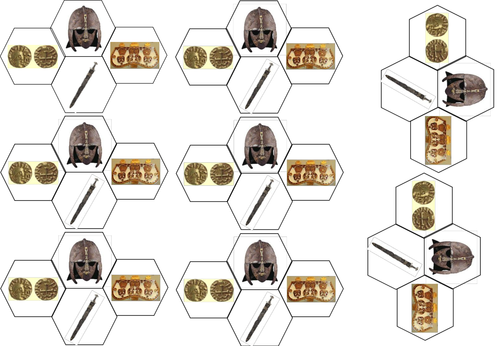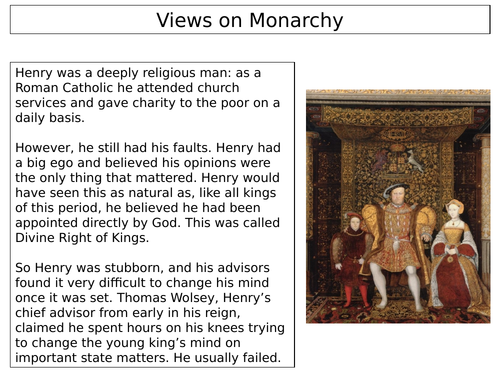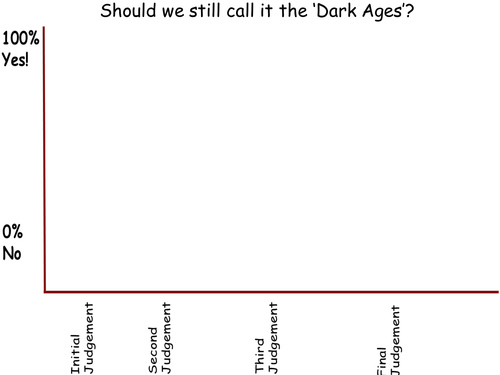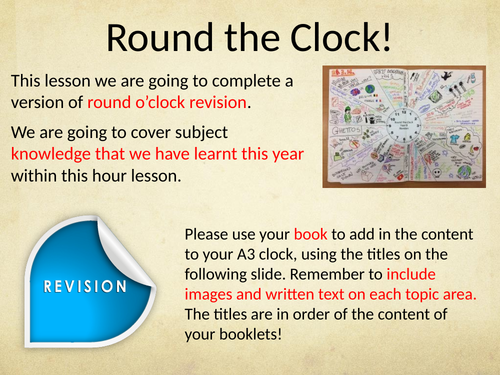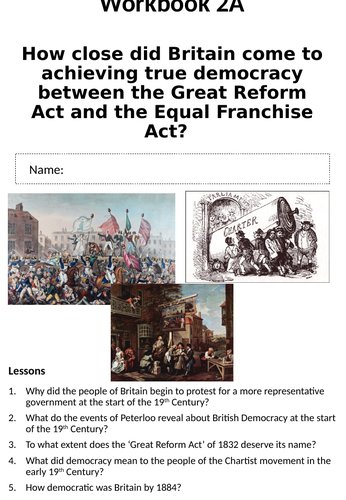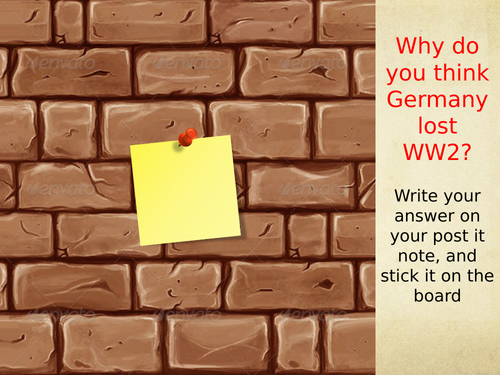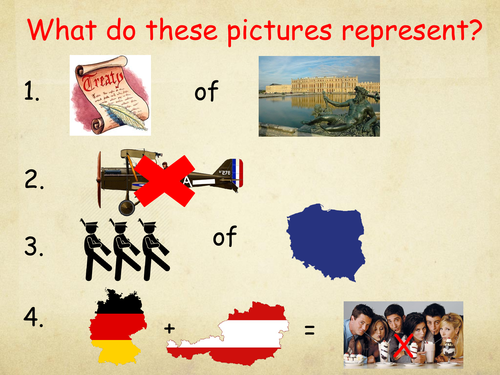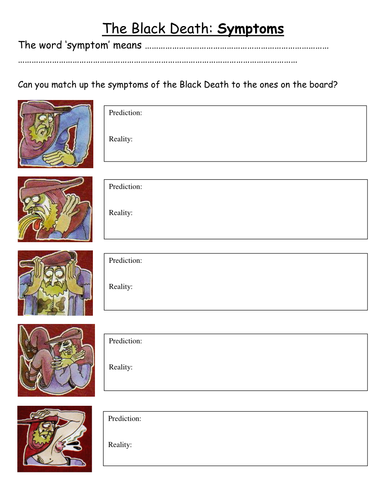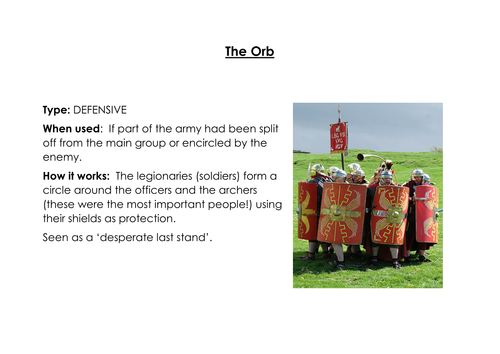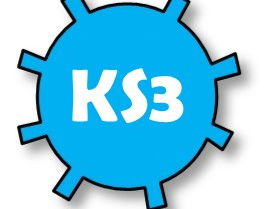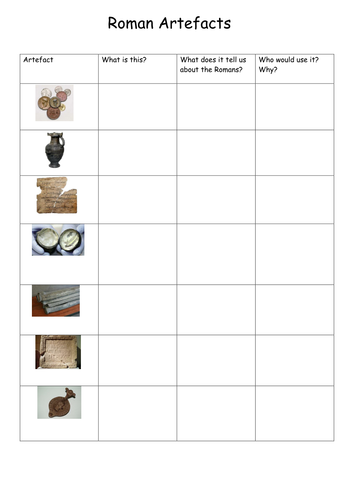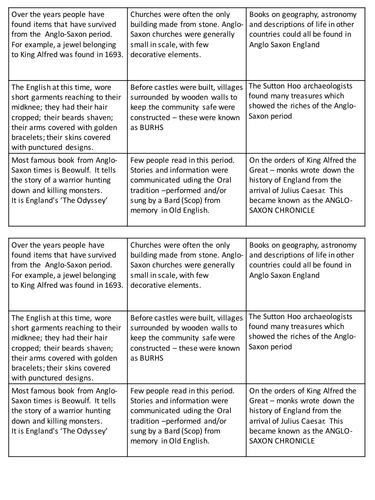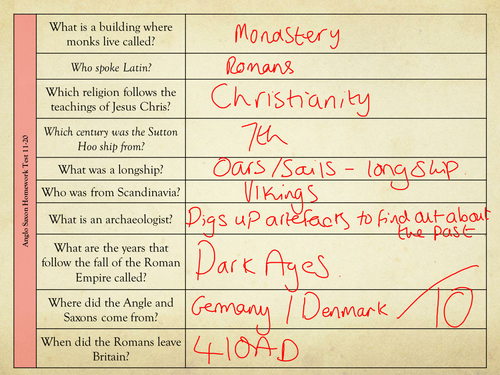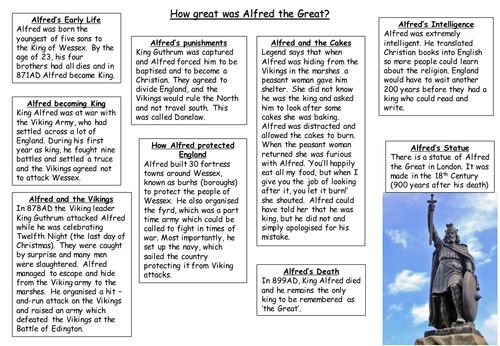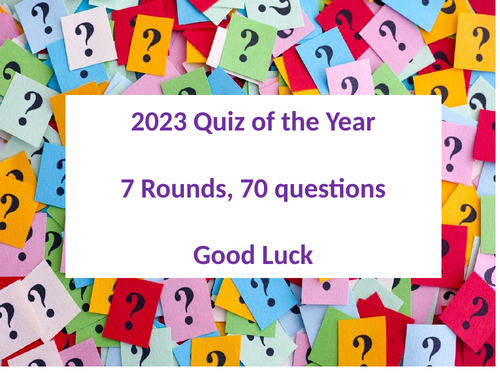
86Uploads
26k+Views
11k+Downloads
All resources

KS3/KS4 History: Anglo-Saxon England Scheme of Work
Suitable for KS3/KS4/KS5 curriculum - easily adaptable across the age/ability levels.
All lessons provided with HA and LA PowerPoints and resources/worksheets.
Knowledge Organiser (for use in homework) and Knowledge Organiser tests also provided.
Assessments/assessment preparation lessons are also provided.
Scheme of Work lessons:
1. How do objects found at Sutton Hoo help historians to learn more about the Anglo-Saxons?
2. How did Christianity change Anglo-Saxon England?
3. Why did Vikings raid England?
4. Do the Vikings deserve their bloodthirsty reputation?
5. Was Alfred the Great really so great?
6. Mini Assessment and Knowledge Test
7. Why is Anglo Saxon England known as the Dark Ages?
8. Why is 10th Century England seen as the Anglo-Saxon Golden Age?
9. Assessment Preparation
10. Assessment (+sentence starters)
All individual lessons are available on my TES page

KS3 History: Who was Henry VIII?
First lesson in SOW that focuses on who Henry was when he became King in 1509, with detailed information, videos etc.
suitable for KS3 - easily adaptable for KS4 and all abilities

KS3 History: How dark were the Dark Ages?
KS3 Lesson which can be easily adapted to KS4/KS5 and across all exam boards.
Full lesson with resources focussing on should the Anglo-Saxon period be known as the Dark Ages
Lesson focusses:
What the Dark Ages mean
Judgement lesson with sources and graphs to track how dark the Dark Ages actually work.
Group or pair work

History KS3 and KS4 Cover Work
Perfect cover lesson that keeps the students occupied, thinking, revising and on task
Round the Clock - all instructions are on the slides, with the sheet to print also available
Please note, this will need to be adapted to each teacher/school/department’s needs - this is simply a good idea for cover work

KS3 History: Democracy and Suffrage 1800-1885 Booklet and SOW
SOW and booklet based on Democracy and Suffrage between 1800-1884.
Focus on how men won the vote in the 19th Century. Lots if interpretations, sources, literacy tasks. Strong resources, and lessons to accompany. Knowledge Organiser and homework tasks.
Lessons:
Why did the people of Britain begin to protest for a more representative government at the start of the 19th Century?
What do the events of Peterloo reveal about British Democracy at the start of the 19th Century?
To what extent does the ‘Great Reform Act’ of 1832 deserve its name?
What did democracy mean to the people of the Chartist movement in the early 19th Century?
How democratic was Britain by 1884?

KS3 History: How significant were the Romans?
KS3 lesson (easily adaptable for LA & MA)
Lesson focuses on how significant the Romans were with a card sort and written task.

KS3 History: Why did Germany lose World War Two?
lesson based on the reasons the Nazis lost WW2 with a focus on D-Day, Stalingrad, Nazi resources and Hitler's leadership.
well resourced with primary and secondary sources, videos, map and pictures.
suitable for KS3 - easily adapted at KS4/KS5 and all abilities.

KS3 History - How was Hitler able to conquer most of Europe by 1941?
KS3 lesson on how Hitler was able to conquer most of Europe by 1941.
Activities include:
Map skills - mapping out the German allies and the countries invaded.
Blitzkrieg - studying how effective Blitzkrieg was.
Suitable for KS3 & KS4 - and easily adapted to all abilities

KS3 History: Black Death Scheme of Work
Suitable for KS3. Six lesson SOW including assessment and peer marking grids. Focus on embedding the new Edexcel GCSE exam skills at KS3. Uses GCSE command words to get all familiar with the words used at KS4. Easy to differentiate and fun, active plenary. All resources are simple and accessible. GCSE skills include; infering from a source, writing a narrative, explaining the main difference between 2 interpretations, explain essays.
Suitable for a school who teaches KS3 once a week - lessons are easily adaptable to extend if required. Focusses on symptoms, arrival, causes, cure, impact

KS3 History: Roman Army Battle Tactics Resources
Not a whole lesson but resources.
Four Roman battle tactics for you to use at any level and for any type of lesson

KS3 History: Symptoms of the Black Death
Suitable for KS3 - focuses on the symptoms of the Black Death.
Easily adaptable for all ability levels

KS3 History: Impact of the Black Death Assessment
Impact of the Black Death assessment.
Resources available:
assessment
peer marking sheet
marking codes available to reduce marking

KS3 History: Causes of the Black Death
KS3 lesson focusing on what people thought caused the Black Death.
Use of sources and in line with the new Edexcel GCSE specification. Use of embedding KS4 skills at KS3.
Easily adaptable to all abilities.

KS3 History: Roman Artefacts
Idenitfying Roman artefacts and introducing the concept of source utility. Resources included.

KS3 History: Was Anglo-Saxon England a 'Golden Age'?
KS3 Lesson which can be easily adapted to KS4/KS5 and across all exam boards.
Full lesson with resources focussing on how far the Angl-Saxon period was a 'Golden Age'.
Lesson focusses:
What a Golden Age is
Are we in a Golden Age now?
Diamond 9 activity - explaining which is the biggest reason we call it the Golden Age.

KS3 History: Anglo-Saxon Mini Assessment
Mini assessment based on the Anglo-Saxons (Vikings, Alfred the Great etc.) great as a mid topic test

KS3 History: How great was Alfred the Great?
KS3 appropriate - great judgement lesson with exams skills

End of Year Quiz
History end of year quiz - seven rounds, seventy questions.
One round is ‘your year in history’ so this would need to be adapted to your curriculum
Nice and easy way to end the year

KS4 AQA History : Prohibition Revision Worksheet
AQA Unit 2 America in the 1920s revision worksheet for Prohibition
Easy to follow and great for getting all the information on one A3 piece of paper

KS4 Edexcel History: The Impact of Florence Nightingale - British medicine through time
New specification of Edexcel GCSE, British Medicine Through Time 1250-present.
This lesson focuses on who Florence Nightingale was, her impact in the Crimea, ,and her impact on nursing and hospitals when she returned from war.
Activities include a Facebook page, and the writing of an obituary.

